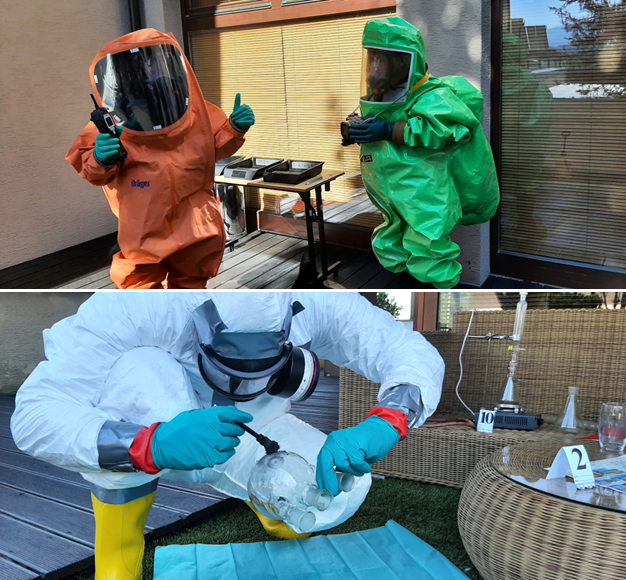
08 Jan Uzbek officials participated in CBRN-E Related Crime Scene Investigation Training
A group of officials from Uzbekistan recently completed a five-day CBRN-E Related Crime Scene Investigation Training program in Rajecke Teplice, Slovakia. Organized by the European Union-funded LEICA project (Law Enforcement In Central Asia), this training was conducted by EU experts from Slovak and Czech CBRN response units.
Thirteen Uzbek officials, including eleven from law enforcement agencies like the Ministry of Interior, State Security Service, and Ministry of Emergency Situations, along with two CBRN safety and security regulatory specialists nominated by the EU CBRN Risks Mitigation Centers of Excellence, participated in the program.
In his opening speech LEICA director noted that the training addressed the evolving face of terrorism threats, such as cyber terrorism and drone threats, driven by advances in chemistry, biology, and nuclear technology. Uzbekistan recognizes the need for well-trained specialists to counter these risks and sought to learn from EU best practices in inter-agency cooperation and CBRN-E response.
The program combined theoretical and practical sessions, covering various methods for handling CBRN agents and contaminated evidence, and included real-life CBRN-E case studies. Participants honed their skills in health and safety procedures, personal protective equipment (PPE) usage, crime scene management, and interagency collaboration during CBRN incidents. They mastered crime scene reconnaissance, detection, threat assessment of hazardous materials, and evidence seizure according to international standards, even when wearing varying levels of PPE. Physical activities while wearing PPEs provided a firsthand understanding of the unique challenges involved in CBRN-E crime scene investigations.
Dr. Marian Kolencik, from the Slovak ISEM Institute, highlighted the mutual learning process between trainers and trainees, fostering knowledge exchange between Uzbek and EU professionals.
Mr. Ibrohim Toshnazarov, representing the Ministry of Internal Affairs, affirmed the broad participation of Uzbek agencies, including investigators, forensic experts, emergency service specialists, and regulatory bodies. This collaborative training equips Uzbekistan to handle diverse incidents, such as terrorist attacks and disasters, leveraging European experiences, methods, and standard operating procedures.
The LEICA project reaffirms its commitment to international collaboration, strengthening the capabilities of Central Asian nations and contributing to global security efforts.
Links:
Leica project website, https://www.project-leica.eu/ (Accessed on 08.01.2024)
Author(s):
Alena DIKOŠOVÁ, International Security and Emergency Management Institute, Slovakia




